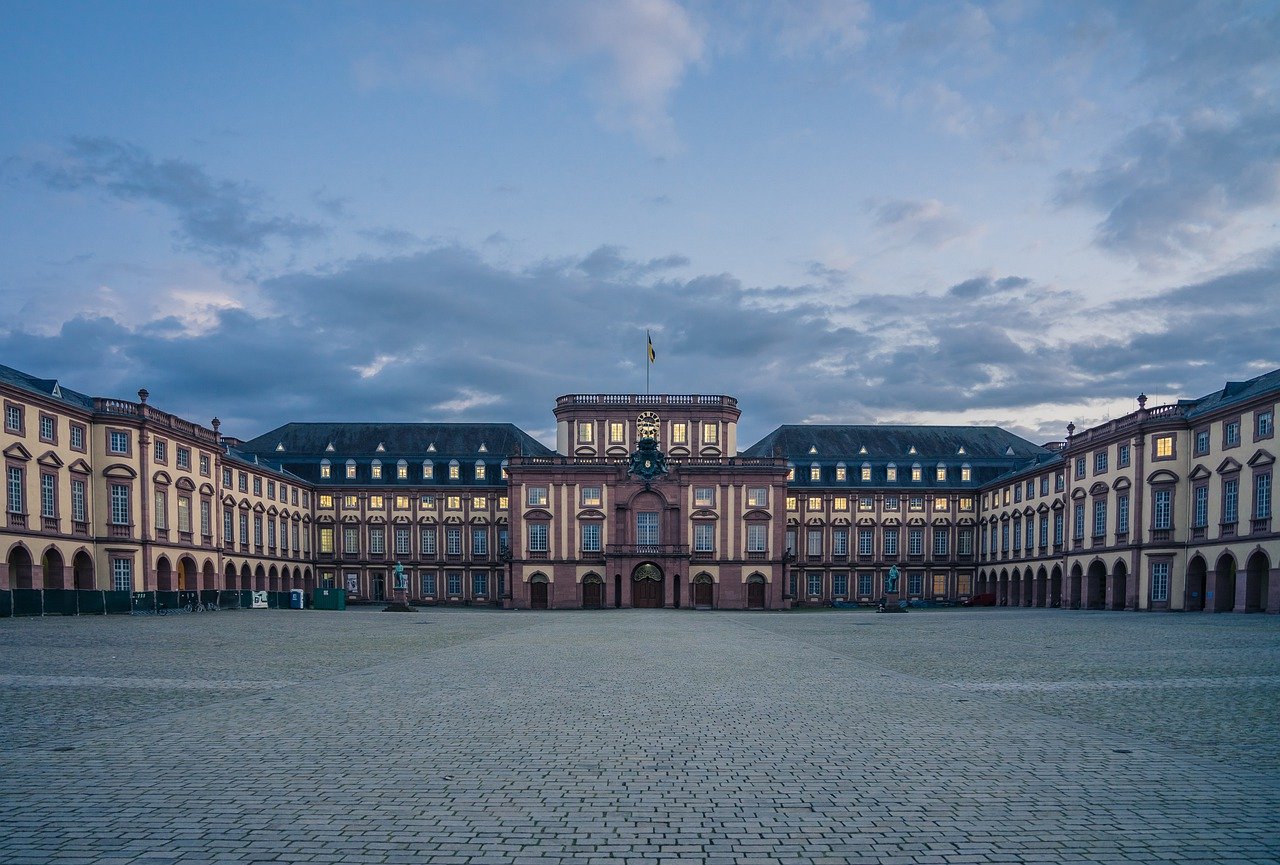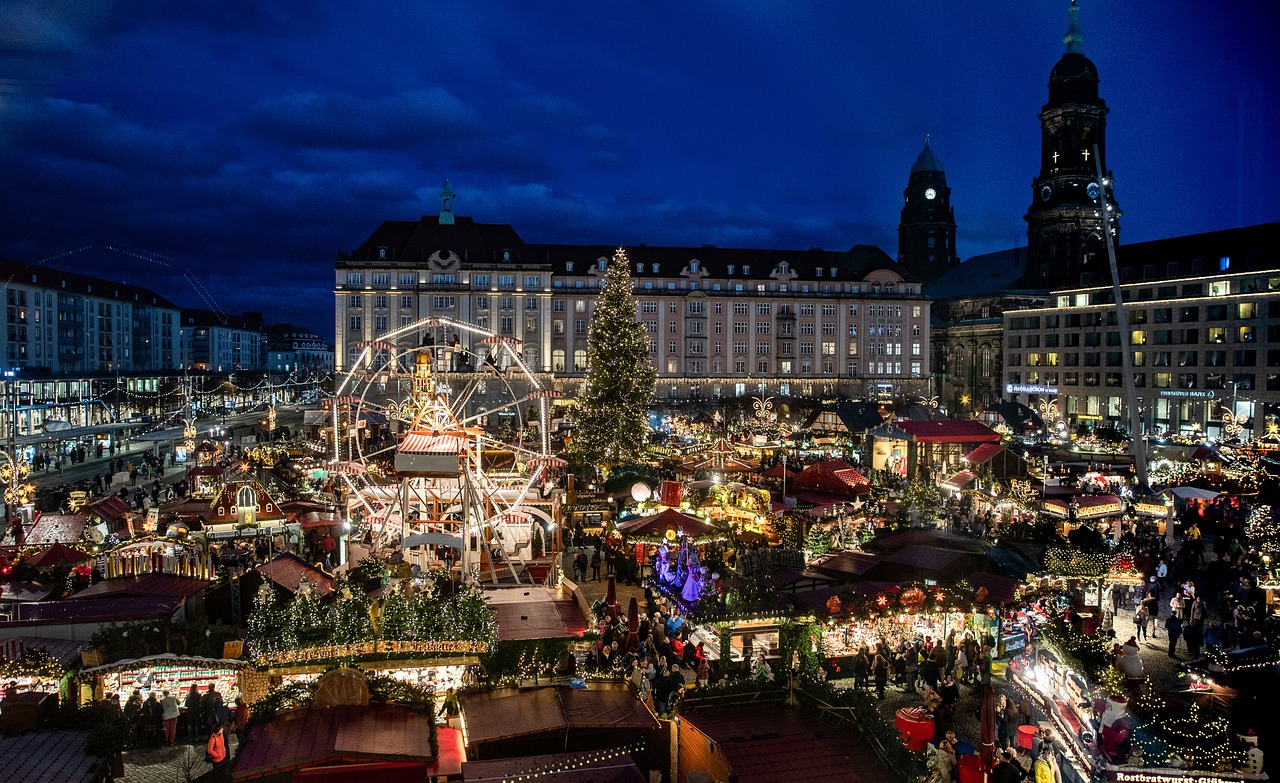Introduction
Germany, located in the heart of Europe, is a country known for its rich history, vibrant culture, and strong economy. It offers a unique blend of modernity and tradition, making it an attractive destination for digital nomads and expats alike. Whether you’re seeking a bustling city life, picturesque landscapes, or a thriving startup scene, Germany has something to offer everyone. In this article, we will explore Germany’s various aspects that make it an ideal place for digital nomads and expats.
Germany For Digital Nomads
Germany has emerged as a popular destination for digital nomads due to its robust infrastructure, high-quality healthcare system, and excellent work-life balance. The country boasts of numerous coworking spaces, cafes with reliable internet connections, and a supportive community of like-minded individuals. Whether you’re a freelancer, remote worker, or an entrepreneur, Germany provides an environment conducive to productivity and personal growth.
- Coworking Spaces: Germany is home to a wide range of coworking spaces that cater to the needs of digital nomads. Some popular options include Factory Berlin, Mindspace, and Betahaus. These spaces offer a collaborative atmosphere, networking opportunities, and essential amenities such as high-speed internet, meeting rooms, and comfortable workstations.
- Cafes with Reliable Internet: Germany’s cities are dotted with cafes that provide a cozy and productive environment for remote work. Many cafes offer free Wi-Fi and have a welcoming atmosphere for freelancers and digital nomads. Some notable cafes include St. Oberholz in Berlin, Café Bla in Munich, and Café Central in Leipzig.
- Supportive Community: Germany has a thriving community of digital nomads and expats who organize meetups, workshops, and events to foster networking and collaboration. Platforms like Meetup and Facebook groups cater to specific interests and help connect like-minded individuals.
Germany Image 1: 
Germany Climate
Germany experiences a temperate seasonal climate with mild summers and cold winters. The climate varies across the country, with coastal regions experiencing a maritime climate and inland areas having a more continental climate. The best time to visit Germany depends on your preferences and the activities you plan to engage in.
- Summer (June-August): Summers in Germany are generally mild and pleasant, with average temperatures ranging from 20°C to 30°C (68°F to 86°F). This is the peak tourist season, and popular destinations can get crowded. It is an ideal time for outdoor activities, exploring historic sites, and enjoying festivals and events.
- Spring (March-May) and Autumn (September-November): These seasons offer mild temperatures, fewer crowds, and beautiful foliage. Spring is known for its blooming flowers, while autumn showcases vibrant fall colors. These seasons are perfect for hiking, exploring nature, and enjoying cultural events.
- Winter (December-February): Winters in Germany can be cold, with temperatures ranging from -1°C to 5°C (30°F to 41°F). However, it is a magical time to visit, especially during the Christmas season when Christmas markets and festive decorations adorn the streets. Winter sports enthusiasts can also enjoy skiing and snowboarding in the German Alps.
Germany Image 2: 
Germany Expat Communities
Germany is home to a diverse expat community, with individuals from various countries and backgrounds. Expats in Germany can find support, friendship, and a sense of belonging through the numerous expat communities across the country. These communities provide a platform for cultural exchange, networking, and socializing.
- Internations: Internations is a popular expat community in Germany that organizes events, activities, and online forums for expats. It offers an opportunity to connect with fellow expats, attend social gatherings, and access valuable resources and information.
- Expat Meetups: Many cities in Germany have dedicated expat meetup groups where individuals can join like-minded expats for socializing, networking, and exploring the local culture. Meetup.com is a useful platform to find and join these groups.
- Online Forums and Facebook Groups: Online forums and Facebook groups cater to specific expat communities in Germany. These platforms provide a space to ask questions, seek advice, and connect with expats who share similar interests or backgrounds.
Germany Image 3: 
Living As An Expat In Germany
Living as an expat in Germany offers numerous advantages, including a high standard of living, access to quality healthcare, and a strong social welfare system. However, it is essential to understand the practical aspects of living in Germany, such as healthcare, housing, and cost of living.
- Healthcare: Germany has one of the best healthcare systems globally, providing high-quality medical care for its residents. Expats are required to have health insurance, either through public or private providers. Public health insurance is mandatory for those earning below a certain income threshold, while private insurance is an option for higher earners.
- Housing: Finding accommodation in Germany can be competitive, especially in popular cities like Berlin, Munich, and Hamburg. Renting is the most common option for expats, with various types of housing available, including apartments, shared flats, and houses. Online platforms like ImmobilienScout24 and WG-Gesucht are useful for finding rental properties.
- Cost of Living: The cost of living in Germany varies depending on the city and lifestyle. Generally, larger cities like Munich and Frankfurt have higher costs compared to smaller towns. Housing, transportation, and healthcare are the major expenses, but the overall cost of living is offset by the high quality of life and the availability of affordable amenities.
Germany Cost Of Living
Germany is known for its high quality of life, but it’s important to consider the cost of living when planning to move or visit. The cost of living in Germany can vary depending on the city, lifestyle, and personal preferences.
- Housing: Rent prices in Germany can be quite high, especially in major cities like Berlin, Munich, and Hamburg. The average monthly rent for a one-bedroom apartment in these cities ranges from €800 to €1,500. In smaller towns, rent prices are generally more affordable.
- Transportation: Germany has an efficient public transportation system, with options like trains, buses, trams, and subways. Monthly public transportation passes typically cost between €60 to €100, depending on the city. Owning a car can be expensive due to fuel costs, insurance, parking fees, and maintenance.
- Groceries: The cost of groceries in Germany can vary depending on the supermarket and location. On average, a weekly grocery bill for one person ranges from €30 to €50. Shopping at discount supermarkets like Aldi and Lidl can help reduce expenses.
Germany Image 1: 
Germany Visas For Digital Nomads
Germany has specific visa requirements for digital nomads who wish to live and work in the country. The visa options available depend on your nationality, intended duration of stay, and purpose of visit.
- Schengen Visa: If you are a citizen of a Schengen Agreement country, you can enter Germany and stay for up to 90 days within a 180-day period without a visa. This visa is suitable for short-term stays and tourism.
- Job Seeker Visa: If you are a highly skilled professional seeking employment in Germany, you can apply for a Job Seeker Visa. This visa allows you to stay in Germany for up to six months to search for employment opportunities.
- Freelance Visa: Germany offers a Freelance Visa for self-employed individuals, including freelancers and digital nomads. To be eligible, you need to prove your professional qualifications, sufficient financial means, and a concrete business plan.
Germany Transportation
Germany has an efficient and well-connected transportation system, making it easy to travel within the country and explore its neighboring countries. Whether you prefer public transportation or renting a car, Germany offers various options to suit your needs.
- Trains: Germany has an extensive train network operated by Deutsche Bahn (DB). Trains are a popular mode of transportation due to their reliability, comfort, and speed. The high-speed train, ICE (InterCity Express), connects major cities and offers a convenient way to travel across the country.
- Buses: Long-distance buses are an affordable alternative to trains in Germany. Companies like FlixBus and MeinFernbus provide extensive bus networks connecting major cities and towns. Buses are generally cheaper but may take longer compared to trains.
- Flights: Germany has several international airports, including Frankfurt, Munich, and Berlin. Domestic flights are available for traveling long distances within the country. Budget airlines like Ryanair and EasyJet offer affordable options for air travel.
Germany Image 2: 
Germany Airports
Germany is served by several international airports, providing convenient access for both domestic and international travelers. These airports offer a wide range of flights, excellent facilities, and efficient transportation connections.
- Frankfurt Airport (FRA): Located in Frankfurt, this is Germany’s busiest airport and one of the busiest in Europe. It serves as a major hub for international travel, with connections to destinations worldwide. The airport offers various amenities, including shops, restaurants, and lounges.
- Munich Airport (MUC): Situated in Munich, this airport is the second busiest in Germany and serves as a major hub for international and domestic flights. It is known for its efficient operations, modern facilities, and excellent transportation connections.
- Berlin Tegel Airport (TXL): Located in Berlin, this airport handles a significant amount of domestic and international air traffic. It is known for its proximity to the city center, making it convenient for travelers. However, it is important to note that Berlin Brandenburg Airport (BER) is scheduled to replace Tegel Airport in the near future.
Facts About Germany
Germany is a country rich in history, culture, and innovation. Here are some interesting facts about Germany:
- Language: The official language of Germany is German, spoken by the majority of the population. However, English is widely understood and spoken, especially in urban areas and among younger generations.
- Education: Germany is known for its excellent education system. The country offers tuition-free education at public universities for both domestic and international students.
- Automotive Industry: Germany is renowned for its automotive industry, with famous car brands such as Volkswagen, BMW, and Mercedes-Benz originating from the country.
Fun Things To Do In Germany
Germany offers a plethora of exciting activities and attractions for digital nomads and expats. From exploring historic sites to enjoying outdoor adventures, there is something for everyone in this diverse country.
- Visit the Neuschwanstein Castle: Located in Bavaria, this fairy-tale castle is one of Germany’s most iconic landmarks. Take a guided tour of the castle and enjoy breathtaking views of the surrounding landscapes.
- Explore Berlin’s Street Art: Berlin is known for its vibrant street art scene. Take a stroll through neighborhoods like Kreuzberg and Friedrichshain to admire colorful murals and graffiti.
- Experience Oktoberfest: Join the world’s largest beer festival in Munich and immerse yourself in Bavarian culture. Enjoy traditional music, food, and, of course, beer.
Popular Germany Tourist Attractions
Germany is home to numerous tourist attractions that showcase its rich history, stunning architecture, and natural beauty. Here are some popular destinations worth exploring:
- The Brandenburg Gate, Berlin: This iconic landmark is a symbol of Germany’s reunification and stands as a symbol of peace and unity.
- The Black Forest: Located in southwestern Germany, the Black Forest is known for its dense forests, charming villages, and picturesque landscapes.
- The Cologne Cathedral: Situated in Cologne, this impressive Gothic cathedral is a UNESCO World Heritage Site and one of the country’s most visited landmarks.
Germany Cities
Germany is home to a diverse range of cities, each with its own unique charm and character. Here are some notable cities in Germany:
- Berlin: The capital city of Germany, Berlin, is known for its vibrant art scene, historical landmarks, and thriving nightlife.
- Munich: Located in Bavaria, Munich is famous for its traditional beer gardens, historic architecture, and the annual Oktoberfest celebration.
- Hamburg: As Germany’s second-largest city, Hamburg offers a vibrant cultural scene, a bustling harbor, and beautiful waterfront views.
Germany Internet Speed and Accessibility
Germany has a reliable and well-developed internet infrastructure, making it easy for digital nomads and expats to stay connected. The country offers high-speed internet access in most urban areas and even in rural regions.
- Internet Speed: Germany’s average internet speed is around 40 Mbps, which is considered relatively fast compared to global standards. However, speeds may vary depending on the provider and location.
- Internet Accessibility: Internet access is widely available throughout Germany, with cafes, coworking spaces, and accommodations offering free Wi-Fi. Mobile data coverage is also excellent, with major providers offering reliable 4G and 5G networks.
Germany Accommodation
Germany offers a wide range of accommodation options to suit various budgets and preferences. Whether you prefer hotels, vacation rentals, or apartment rentals, you can find suitable options in most cities and towns.
- Popular Germany Hotels: Germany boasts a variety of hotels, ranging from budget-friendly options to luxury establishments. Some popular hotels include Hotel Adlon Kempinski in Berlin, Bayerischer Hof in Munich, and Hotel Atlantic Kempinski in Hamburg.
- Popular Germany Vacation Rentals: Vacation rentals are a popular choice for longer stays or travelers seeking a more home-like experience. Platforms like Airbnb and Booking.com offer a wide selection of vacation rentals across Germany.
- Popular Germany Apartment Rentals: Apartment rentals are widely available in Germany, especially in major cities. Websites like ImmobilienScout24 and WG-Gesucht provide listings for long-term apartment rentals.
Germany Image 3: 
Germany Food & Drink
German cuisine is diverse, hearty, and known for its delicious flavors. From traditional dishes to international cuisine, Germany offers a wide range of culinary experiences.
- Traditional German Dishes: Some must-try traditional German dishes include bratwurst (grilled sausages), sauerkraut (fermented cabbage), schnitzel (breaded and fried meat), and pretzels. Don’t forget to pair your meal with a refreshing German beer.
- International Cuisine: Germany’s cities are multicultural, offering a variety of international cuisines. From Italian pizza to Vietnamese pho, you can find a wide range of options to satisfy your cravings.
- Street Food: Street food markets and food trucks have gained popularity in Germany, offering a diverse range of quick and tasty meals. Currywurst, döner kebab, and falafel are popular street food choices.
Germany Grocery Stores
Germany has a well-established grocery store culture, with a variety of options available to cater to different preferences and budgets. Whether you prefer large supermarkets or local markets, you can find fresh produce, household items, and a wide range of food products.
- Aldi: Aldi is a popular discount supermarket chain in Germany, offering a wide range of affordable groceries and household items.
- Edeka: Edeka is one of Germany’s largest supermarket chains, providing a comprehensive selection of products, including fresh produce, dairy, and international food items.
- Farmer’s Markets: Germany is known for its vibrant farmer’s markets, where you can find locally sourced fruits, vegetables, meats, and artisanal products. These markets offer a unique shopping experience and a chance to support local producers.
Conclusion
Germany is a welcoming and attractive destination for digital nomads and expats. With its thriving cities, diverse expat communities, excellent infrastructure, and high quality of life, Germany offers a conducive environment for work and personal growth. Whether you’re drawn to its rich history, stunning landscapes, or vibrant culture, Germany has something to offer everyone. Consider the practical aspects, immerse yourself in the local culture, and make the most of your time in this fascinating country.
References
– https://www.internations.org/germany-expats/guide
– https://www.germany.travel/
– https://www.german-way.com/
– https://www.bundesregierung.de/
– https://www.auswaertiges-amt.de/
– https://www.germany.info/
– https://www.dw.com/

